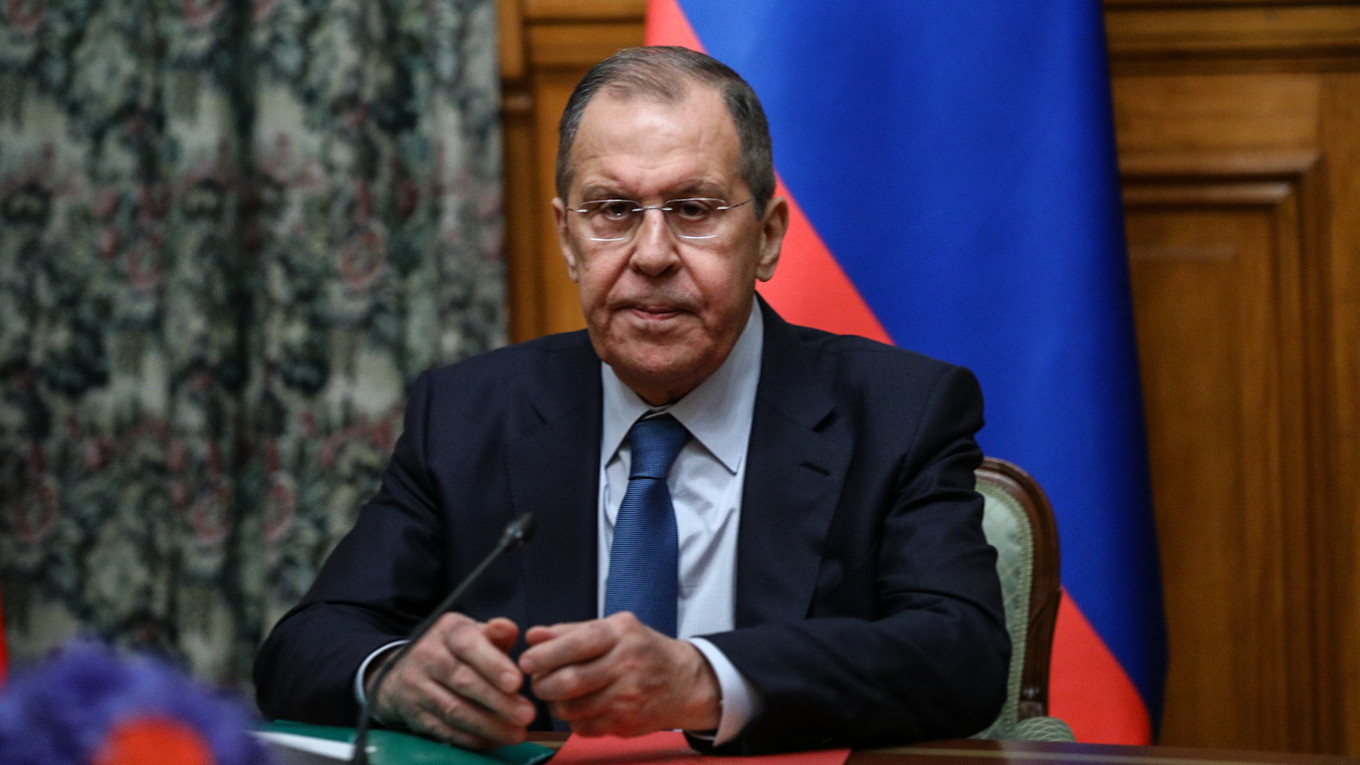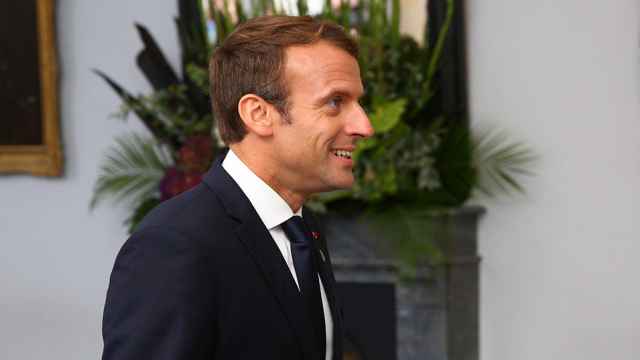Foreign Minister Sergei Lavrov dropped a bombshell on Tuesday, warning that Russia might halt all dialogue with the European Union. Mr. Lavrov offered no explanation for what was probably the most severe public statement on the EU of his career. Perhaps he was reacting to extended talks he recently held with EU Foreign Minister Josep Borrell — talks that, by all appearances, did not go well.
Naturally, the EU will respond to his statement with great displeasure and indignation, but Lavrov’s comment was actually rooted in a process that began long before the current crisis, all the way back to when Russian-EU relations looked positively upbeat and promising.
Common, but shaky ground
The modern Russian state and the EU came into existence at practically the same time — the former in late December 1991 and the latter in February 1992 — and they soon laid the groundwork for their mutual relations. The two parties signed a Partnership and Cooperation Agreement in 1994 — and ratified it in 1997 — that made their relations so close as to be considered “strategic” at one point.
This differs significantly from the slogan of a “Europe stretching from Lisbon to Vladivostok” that former Soviet leader Mikhail Gorbachev coined in 1989 to connote a common European homeland that, in reality, had no document or agreement to back it up.
By contrast, the Russian-EU partnership was based firmly on the idea of integration. While Brussels never offered Russia full EU membership, it offered general, though indefinite assurances that its eastern neighbor would play a suitably substantial role in the “Greater Europe” that was then being built.
At the core of this “Greater Europe,” as it was then envisioned, was a rapidly expanding European Union that wound up more than doubling in size from 1992 to 2007 — and which, it was expected, would eventually include Russia as well as other Soviet republics. A sort of pan-European space was created, although Russia’s status in that new entity was never described or even discussed. Both sides simply assumed that Russia would be part of Europe.
In hindsight, it seems that Russia and the EU understood that partnership differently.
However, they agreed at the time that everything from the structure of the state to economic regulation should be based on the legal and regulatory framework of the EU — which they both considered clearly superior. Ideally, every country that was included in that European space would have adopted European rules and regulations, after which they would either become EU members — some, strictly due to their size — or else, as in the case of Russia and Ukraine, associate members. Every newcomer was expected to bring its laws and regulations into line with the European standard.
And in this regard, it differed fundamentally from Gorbachev’s idea of a “Europe stretching from Lisbon to Vladivostok.” Although the Soviet leader did not offer any details regarding the pan-European homeland, he clearly anticipated a partnership of equals.
The Soviet leader looked to a coming convergence, a mutual rapprochement in which each player — the Soviet Union, the European Community and the West as a whole — would contribute their strongest qualities, each somehow coming together in a whole that was more than the sum of its parts. In was, in a word, utopia, but not a tenable plan.
Significantly, it was not former President Boris Yeltsin in the 1990s who made the greatest efforts to achieve Russia’s integration into the European space based on European principles, but President Vladimir Putin during his first term in the early 2000s.
Yeltsin had to overcome Russia’s internal crisis before there could be any talk of integrating with Europe. By the 2000s, when the state and its apparatus had stabilized and oil revenues filled government coffers, Putin searched diligently for an opportunity to implement the partnership with the EU and to further rapprochement. This continued from 2001 until as late as 2006.
The honeymoon had ended
Russia’s potential had grown significantly by that time, as had its expectations for the role it would play in a partnership with the EU.
Russia rejected as illegitimate the expectation that it comply unquestionably with European norms and felt that any partnership must be based, if not on strictly equal terms, then at least on special conditions. However, the EU never even considered Russia a special case, arguing that any reconsideration of its rules violated the very principles of European integration.
For this reason, the very idea of a strategic and integration partnership between Russia and the EU began eroding around the mid-2000s. This erosion occurred very gradually, not only because Russia’s domestic and foreign policy had begun to change significantly, but also because the EU unexpectedly faced a crisis, one that reached full force in the early 2010s.
By that time, although the partnership agreement first drawn up in the early 1990s remained unchanged — as it does today — the reality of Russia’s relationship with Europe increasingly diverged from its original configuration. Both sides’ objectives and, more importantly, their self-perceptions, grew further and further apart.
The most striking illustration of this was the obvious disconnect between the words spoken at the final Russia-EU Summit, held in Brussels in late January 2014, and the reality on the ground.
The Maidan protests were raging in Kiev, only three weeks remained before Ukrainian President Viktor Yanukovych would flee and new authorities would come to power, and relations between Russia and the EU — that stood on opposite sides of those barricades in Kiev — could not have been worse.
While President Putin and EU Commission President Manuel Barroso stood before the cameras and repeated the very same mantras they had been uttering for years, even decades, about partnership, a common space, road maps and so on, their faces betrayed what they were really thinking — namely, that nothing of the sort was going to happen.
But they had no other options on the table. Pure inertia from the process begun in the early 1990s compelled them to repeat the same tired calls for a close future partnership.
Then came the game-changing events in Ukraine, and much more besides. The long-standing framework for Russian-EU relations turned into an anachronism overnight, giving way to heated antagonism and competitiveness. Nevertheless, both sides continued paying lip service to partnership, dialogue and, in general, a state of affairs that had last existed 25 years earlier.
Fast forward to the present, and we have Russian Foreign Minister Sergei Lavrov indirectly acknowledging how bad things have actually become. In effect, he has simply stated what everyone already knew — namely, that the old framework for Russian-EU relations no longer exists.
This does not mean an end to all relations, only an end to relations as they were.
The same, only different
A new framework is needed now, but it will probably be a long time in coming. And the framework Russia might want for its relations with Europe will not materialize for the very reasons mentioned above: present circumstances are simply too unfavorable.
Of course, no new Iron Curtain between Russia and the EU will fall from the sky. Their mutual humanitarian and economic relations remain very strong, despite some damage from sanctions, and cultural and even political ties remain intact. However, these are strictly utilitarian relations, without any pretense of common goals, and they take a backseat to Moscow’s bilateral relations with individual European countries. Russia and Europe are devolving into coolly polite neighbors that have no real interest in each other, but who are forced to interact simply because they live next door to each other.
In fact, Russia must now focus more on its main neighbor, China. Although Russia’s quarrel with the West plays some role in this pivot eastward, it is the enormously long Russian-Chinese border and the fact that China is rapidly becoming, if not a world hegemon, then at least one of the two pillars of the new world order that compels Moscow to devote far more attention to this neighbor than it is accustomed to.
More importantly, and what will cause fundamental change to Russia’s relations with Europe, is the fact that, for better or worse, the global balance is shifting towards Asia. As a result, the focus that Russia has had on Europe and West for the past 300 years no longer corresponds to the global reality. Russia cannot afford to treat Asia as a secondary priority, although it often still does. If Moscow continues in this way, Russia could find itself facing a creeping expansionism from the east.
In any case, Russia’s former model of relations with the European Union has clearly ceased to function, and one way or another, the two sides have started to acknowledge this openly.
This article was first published by Vtimes.
A Message from The Moscow Times:
Dear readers,
We are facing unprecedented challenges. Russia's Prosecutor General's Office has designated The Moscow Times as an "undesirable" organization, criminalizing our work and putting our staff at risk of prosecution. This follows our earlier unjust labeling as a "foreign agent."
These actions are direct attempts to silence independent journalism in Russia. The authorities claim our work "discredits the decisions of the Russian leadership." We see things differently: we strive to provide accurate, unbiased reporting on Russia.
We, the journalists of The Moscow Times, refuse to be silenced. But to continue our work, we need your help.
Your support, no matter how small, makes a world of difference. If you can, please support us monthly starting from just $2. It's quick to set up, and every contribution makes a significant impact.
By supporting The Moscow Times, you're defending open, independent journalism in the face of repression. Thank you for standing with us.
Remind me later.








